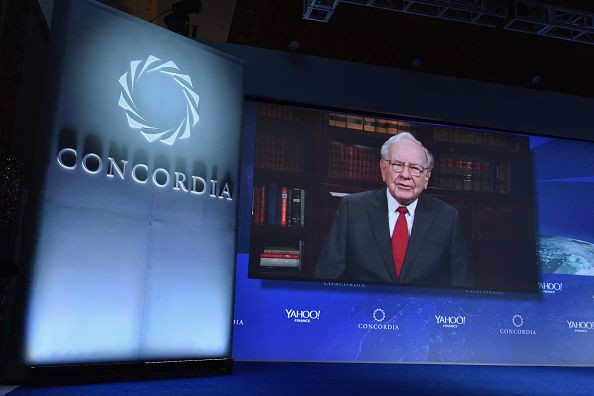What Warren Buffett's Berkshire Buybacks Mean To You

Warren Buffett is one of the most famous investors of all time, and even at 88 years old, he's still on top of his game as the CEO of Berkshire Hathaway (NYSE:BRK-A) (NYSE:BRK-B). Having made his fortune as a stock-picker, Buffett understands the need to get good value when you invest, and he's often held out for opportunities to pick up undervalued companies at bargain prices.
This article originally appeared in the Motley Fool.
Buffett has often gone against the grain, and one area in which Berkshire has lagged behind many of its peers in the corporate world is in doing share repurchases. Despite explosive growth in stock buybacks across the market, Buffett has largely been a holdout. That's what made the news that Berkshire gave in its third-quarter financial report last weekend so important, because it marked what could become a big shift in strategy for the insurance giant.
Berkshire's history of stock buybacks
Berkshire Hathaway hasn't done many buybacks in the past. Back in 2000, when the company's shares had gone through a protracted period of underperformance, Buffett addressed the issue in his annual letter to shareholders. Despite acknowledging that buybacks were in style at the time, he said they were done primarily to pump the price of a stock. As Buffett saw it, "The shareholder who chooses to sell today, of course, is benefited by any buyer, whatever his origin or motives. But the continuing shareholder is penalized by repurchases above intrinsic value. Buying dollar bills for $1.10 is not good business for those who stick around." Yet the Oracle of Omaha acknowledged that at times, not doing buybacks was a mistake, and so he opened the door for shareholders to contact Berkshire directly if they wanted to make an offer.
Then, in September 2011, Berkshire formalized its repurchase program. In a news release (opens a PDF), Berkshire set a limit of 10% above book value for buying back shares. The company also said it would always maintain at least $20 billion in cash and equivalents to consider other strategic options, essentially confirming its preference for traditional investments and acquisitions over repurchases of its own stock.
Buffett then made a change to that rule just over a year later. A major shareholder's estate had a large block of shares that it wanted to sell, and Berkshire did so, spending $1.2 billion to buy back 9,200 "A" shares at roughly 1.2 times book value. Berkshire's news release (opens a PDF) confirmed the raising of its limit to a 20% premium to book value.
What Berkshire did
Three months ago, Berkshire made a huge change to its buyback policy. Rather than having a hard-and-fast multiple to book value, Berkshire instead gave Buffett and his team the right to do buybacks if they believe that shares are below their intrinsic value. That opened the door to a much more liberal application of repurchases, but it didn't require immediate disclosure of those moves.
Only in last weekend's release of financial results did we find out what the change actually meant. Berkshire bought back more than $925 million in stock during the third quarter, all in a two-and-a-half week period in mid-August. More than 90% of the repurchases involved class B shares, with the company paying an average of $207.09 per share for the stock -- above where the shares had closed immediately before Berkshire's release of its quarterly report. That acknowledgment that $207 per share was less than Buffett's assessment of intrinsic value sent Berkshire shares soaring after the report's release.
What it means for investors
Some shareholders look at the buyback authorization as a "Buffett put," believing that the stock could never go below a certain value because if it did, repurchases would lift the share back up. It's important to note that Buffett would almost certainly disagree with that assessment, as it's specifically not his intent to try to pump Berkshire's stock price.
With more than $100 billion in cash on its balance sheet, though, Berkshire has had trouble finding good investment opportunities. In an environment in which overvalued securities are the norm, resorting to buying back shares could be the best way for Buffett to deploy capital right now -- unless bullish shareholders pump up Berkshire's price so high that those buybacks no longer make sense either.
Dan Caplinger owns shares of Berkshire Hathaway (B shares). The Motley Fool recommends Berkshire Hathaway (B shares). The Motley Fool has a disclosure policy.





















